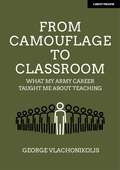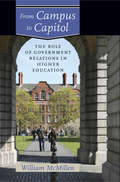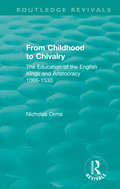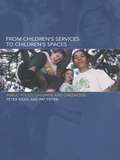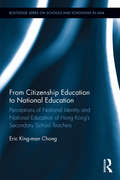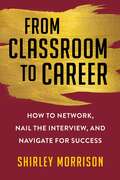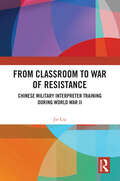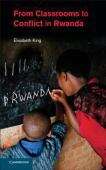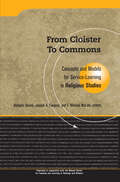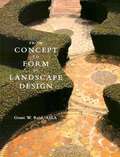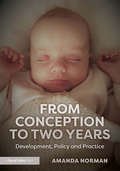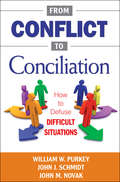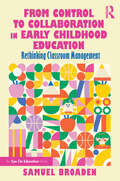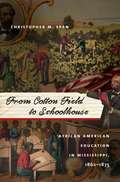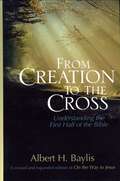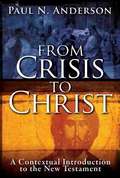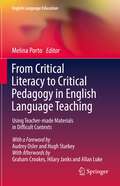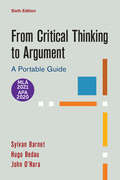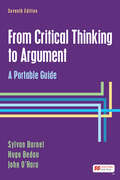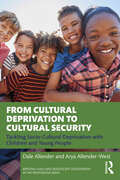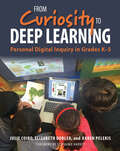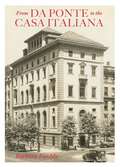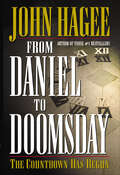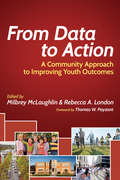- Table View
- List View
From Camouflage to Classroom: What my Army career taught me about teaching
by George VlachonikolisOn George Vlachonikolis' 25th birthday, he was holding an SA80 assault rifle. Inside his webbing pouches were 150 rounds of ammunition, two HE grenades, two smoke grenades, a small survival kit, 20 Marlboro Lights, and a medikit that included two sticks of morphine and two tourniquets. Strapped to the left-hand side of his Osprey body armour, within easy reach, was his bayonet. George was in Helmand Province, Afghanistan. On George’s 37th birthday, he was wearing a striped cotton twill shirt and well-ironed beige chinos. A thin fabric lanyard carried his ID badge proudly. In front of him was a class of secondary school students, who were settling down and getting ready for their next lesson. George was in a school in the UK. From Camouflage to Classroom is about everything George learned with the Army in Afghanistan and has brought to his classroom teaching today. By reflecting on the most intense and thought-provoking experiences of his life, George aims to explore the role of the classroom teacher from an original perspective: one based on military principles and practice. This book takes a direct, human and very honest look at the challenges faced by classroom teachers today and offers some military-inspired solutions.
From Campus to Capitol: The Role of Government Relations in Higher Education
by William McMillenFrom Campus to Capitol takes a comprehensive look at how governments affect institutions of higher learning, in the process illuminating the role of the government relations officer. All institutions of higher learning, from large state universities to community and private colleges, benefit from strong relationships with local, state, and federal governments. This book examines the importance of government relations officers and discusses how they can most effectively negotiate a tangled web of political entities—from community associations to mayors to lobbyists—while ensuring that their institution's best interests are met. In an era of declining state appropriations, increasing economic instability, and surging enrollments, successful interaction with government representatives is crucial. Whether securing a million-dollar federal earmark or helping to support the local economy, the government relations officer's influence is essential, both where it shows and behind the scenes. Drawing on more than thirty years of experience, William McMillen offers an insider's account of this major player in American higher education. Anecdotes and interviews with other government relations officers illustrate the challenges they face on and off campus.
From Childhood to Chivalry: The Education of the English Kings and Aristocracy 1066-1530 (Routledge Revivals)
by Nicholas OrmeOriginally published in 1984, this is a study of the kings and the aristocracy who ruled England between the Conquest and the Reformation. Not, as usual, about their adult lives, but how they became the people they were through childhood and education. The first such study of its kind, it follows noble boys and girls from birth through the care of their nurses, masters and mistresses, until they left home for further training in noble households, monasteries and universities. The author examines the theories and treatises on noble education, again for the first time. The rest of the book broadens into a wide cultural survey as Dr Orme describes the skills and ideas which noble children learnt. He explains how they mastered speech and literacy; worship and behaviour; dancing, music and applied art; athletics and training for war. This part of the study is a handbook of noble pursuits in medieval times. In his final chapter the author considers the nature of noble education in the middles ages, and examines how and whether it changed at the Renaissance. Nicholas Orme has written a comprehensive study, spanning 450 years of English history and making a major contribution to social and cultural history, as well as the history of education. His book will be invaluable to historians and medievalists of all disciplines, and essential reading from those who study the Renaissance.
From Children's Services to Children's Spaces: Public Policy, Children and Childhood
by Peter Moss Pat PetrieMore than ever before, children are apparently being recognised as social actors and citizens. Yet public policy often involves increased control and surveillance of children. This book explores the contradiction. It shows how different ways of thinking about children produce different childhoods, different public provisions for children (including schools) and different ways of working with children. It argues that how we understand children and make public provision for them involves political and ethical choices.Through case studies and the analysis of policy and practice drawn from a number of countries, the authors describe an approach to public provision for children which they term 'children's services'. They then propose an alternative approach named 'children's spaces', and go on to consider an alternative theory, practice and profession of work with children: pedagogy and the pedagogue.This ground breaking book will be essential reading for tutors and students on higher education or in-service courses in early childhood, education, play, social work and social policy, as well as practitioners and policy makers in these areas.
From Citizenship Education to National Education: Perceptions of National Identity and National Education of Hong Kong’s Secondary School Teachers (Routledge Series on Schools and Schooling in Asia)
by King Man ChongThis book makes a timely contribution to understanding perceptions on national identity and National Education, with both of them have become controversial topics in Hong Kong Special Administrative Region (SAR) of China. In a so-called globalization era, national identity and National Education, with the latter having an aim of fostering a Chinese national identity in education, have been significantly pushed ahead by the Hong Kong SAR government since the early 2000s as a response to the return of sovereignty to China in 1997. Teacher perception matters to what they select and how they teach in the schools. By incorporating fieldworks of teacher interviews, observation and documentary analysis, this book argues for a multi-layered conception of identity, different aims, contents and diversified methods of National Education should be recognized. This book is likely to become a useful account of teacher perception on national identity and National Education in citizenship education literature, and it will be relevant to policymakers, teachers, trainers and researchers. Chapters include, 1. Different meanings of national identity of teachers and aims, contents and methods of National Education2. From Citizenship Education to National Education in a Chinese society3. Implications for understanding National Education in a globalization era: mixed identification, multi-layered identities, knowledge transmission, and ‘global identity’
From Classroom to Career: How to Network, Nail the Interview, and Navigate for Success
by Shirley MorrisonAn authentic, engaging, and practical guide to help college grads thrive personally and professionally.The rules have changed; the traditional workplace is dead. To BOOM in employment today, the secret is to alter the approach, and From Classroom to Career will tell you how. Gen Z and Millennials are asking for this value-led guide as they embark on careers.Entertaining, personal, and relatable, the voice of the book is purposely casual, as if speaking in a café. It&’s a voice everyone trusts. Reasonable, logical, and concrete advice for today&’s how-to: how to write a business email; how to successfully land and then stand out in an interview, including in a virtual world; how to ask questions that can be adapted to any job/role; how to write a CV with examples. Inspiring, surprising, real-life stories show empathy for what the readers are likely going through, so they&’ll forget it&’s a business book.From Classroom to Career integrates the personal and career. This is in fact the real reality of every human being: we&’re so much more than careerists. It&’s impossible to thrive career-wise if you are not happy outside of work. People are happier when they have a balance, enabling them to achieve personally and professionally. By helping readers to discover their own values, this guide gets them to think about their own career and who they want to be. This is entirely unlike any other business book out there.
From Classroom to War of Resistance: Chinese Military Interpreter Training during World War II
by Jie LiuThis book focuses on a long- neglected yet important topic in China’s translation history: interpreter/ translator training and wartime translation studies. It examines the military interpreter training programmes after the outbreak of the Pacific War (1941–1945), further revealing the indispensable role of translation and interpreting in war. The author explores the relationship between linguistic education and war context in the China- Burma- India Theatre, where international cooperation was salient. Some 4,000 interpreting officers played a vital role in assisting in air defence, transportation, training of the Chinese army and coordinating expeditionary operations. The book seeks to bring these interpreters to life, telling the stories of why they joined the war, how they were trained and what they did in the war. Through the study of training programmes, historical archives, accounts and trainees’ memoirs, discussions revolve around key strands of education, including curriculums, textbooks and training methods. Utilising foreign language education practices as its main case study, the book analyses these through the framework of linguistic and translation theories. The book contributes to Chinese interpreting history by exploring its first-ever nationwide professional interpreting (and translation) training practices, and will inspire scholars of translation/ interpreting training, world modernhistory and foreign language education in general.
From Classrooms to Conflict in Rwanda
by Elisabeth KingThis book questions the conventional wisdom that education builds peace by exploring the ways in which ordinary schooling can contribute to intergroup conflict. Based on fieldwork and comparative historical analysis of Rwanda, it argues that from the colonial period to the genocide, schooling was a key instrument of the state in contributing to the construction, awareness, collectivization and inequality of ethnic groups in Rwanda - all factors that underlay conflict. The book further argues that today's post-genocide schools are dangerously replicating past trends. This book is the first to offer an in-depth study of education in Rwanda and to analyze its role in the genesis of conflict. The book demonstrates that to build peace, we cannot simply prescribe more education, but must understand who has access to schools, how schools are set up, and what and how they teach.
From Cloister To Commons: Concepts and Models for Service Learning in Religious Studies
by Richard Devine Joseph A. Favazza F. Michael McLainThis volume, like its series companions, goes beyond simple "how-to" to discuss the implementation of service-learning within religious studies and what that discipline contributes to the pedagogy of service learning. The volume contains both theoretical and pedagogical essays by scholar-teachers in religious studies education, plus a resource guide.
From Concept to Form in Landscape Design
by Grant W. ReidFrom Concept to Form in Landscape Design provides vital, functional techniques that make the transformation easier and more effective.
From Conception to Two Years: Development, Policy and Practice
by Amanda NormanRecognising the importance of ‘the first one thousand days’, from the beginning of a woman’s pregnancy until her child’s second birthday, this comprehensive guide takes a fresh look at the role of the practitioner in supporting the family, mother and child from conception through to early infancy. A period of dramatic physical, social and emotional change for both the parent and child, an infant’s experiences during his or her first two years of life have a significant impact on later development. From Conception to Two Years brings together key research, theory and experiences from practice to further practitioners’ knowledge and understanding of this critical period, and it informs professional approaches to providing care. Offering an explanation of key issues affecting the care of very young children, chapters feature reflective questions and promote discussion and further thinking on topics including: understanding and supporting parents and families during the transition to parenthood building a positive practitioner–parent relationship development, growth and care during the prenatal period approaches to care in the perinatal period attachment and the development of emotional connections ethical issues surrounding the care of infants creating playful care opportunities with infants and their families. Giving Early Years practitioners and students the knowledge, skills and confidence they need to effectively support and care for children and their families from the very start, From Conception to Two Years is an essential guide for the provision of high quality infant care.
From Conflict to Conciliation: How to Defuse Difficult Situations
by John J. Schmidt William W. Purkey John M. NovakThe Six-C process allows educators to take progressively more assertive steps as needed to resolve a conflict, using the least amount of time and energy while preserving relationships.
From Control to Collaboration in Early Childhood Education: Rethinking Classroom Management
by Samuel BroadenClassroom management is a popular topic in early childhood settings, but what exactly does it mean? In this eye-opening book, educators and caregivers are invited to redefine what it means to their teaching—shifting away from control and obedience and adopting a model of guidance, support, and celebration. Filled with reflective prompts and practical strategies, this book empowers early childhood educators and caregivers to create nurturing spaces that honor each child's individuality and potential. It shows readers step by step how to dismantle the outdated notions of management to foster a collaborative classroom environment where teachers and children partner in learning. With a welcoming, conversational style, From Control to Collaboration in Early Childhood Education invites you to rethink how you view children and your role in their educational experience so that we can cultivate classrooms that inspire joy, creativity, and a lifelong love of learning.
From Cotton Field to Schoolhouse
by Christopher M. SpanIn the years immediately following the Civil War--the formative years for an emerging society of freed African Americans in Mississippi--there was much debate over the general purpose of black schools and who would control them. From Cotton Field to Schoolhouse is the first comprehensive examination of Mississippi's politics and policies of postwar racial education. The primary debate centered on whether schools for African Americans (mostly freedpeople) should seek to develop blacks as citizens, train them to be free but subordinate laborers, or produce some other outcome. African Americans envisioned schools established by and for themselves as a primary means of achieving independence, equality, political empowerment, and some degree of social and economic mobility--in essence, full citizenship. Most northerners assisting freedpeople regarded such expectations as unrealistic and expected African Americans to labor under contract for those who had previously enslaved them and their families. Meanwhile, many white Mississippians objected to any educational opportunities for the former slaves. Christopher Span finds that newly freed slaves made heroic efforts to participate in their own education, but too often the schooling was used to control and redirect the aspirations of the newly freed.
From Creation to the Cross: Understanding the First Half of the Bible
by Albert H. BaylisMost Christians don't quite know what to do with the first half of the Bible. Some are fascinated by the historical sweep of the Old Testament. Others are blessed by its poetry. Still others focus on its prophecies. But what are the heart and soul of the Old Testament? In From Creation to the Cross, Al Baylis is a guide who shares with us his love for, and profound understanding of, the Old Testament. He walks us through the Old Testament, pointing out along the way perspectives and insights that leave us with a new, personal understanding of these thirty-nine books -- and more importantly, of the God of the Old Testament, who lovingly prepared the way before sending his Son. As Bruce Wilkinson puts it in the Foreword, "I could almost picture (Baylis) as a seasoned rabbi surrounded by a huddle of eager listeners. He doesn't simply teach the Old Testament; it's as if he personally reminisces through it." From Creation to the Cross is one of those rare books that speaks to a wide range of readers, from high school students to homemakers to college professors. This revised and expanded edition of On the Way to Jesus makes this unique and highly readable approach to the first half of the Bible available once again. It is ideally suited for use in Bible study groups.
From Crisis to Christ
by Paul N. AndersonOver the last century or more, scholars have unearthed valuable understandings of the historical and religious contexts out of which the New Testament writings have emerged. This accessibly written introduction notes over two dozen such crises and how the biblical text addresses and reflects them. From the ministry of Jesus, to the rise and progress of the Christian movement, to the epistles of Paul and other leaders, to a vision of God's final cosmic victory, the New Testament books are succinctly introduced in literary, historical, and theological perspective. Designed for optimal use in a 14- or a 10-week undergraduate or graduate course, each chapter is designed with four primary features in mind: (a) contextual crises shedding light on the subject, (b) connections with the biblical writings being discussed in that chapter, (c) primary features of the book(s) being discussed, and (d) an application section dealing with the relevance of the biblical content then and now. Call-out boxes and shorter vignettes will also be used to heighten particular themes, and images, charts, and maps will be used to make it a reader-friendly product.
From Critical Literacy to Critical Pedagogy in English Language Teaching: Using Teacher-made Materials in Difficult Contexts (English Language Education #23)
by Melina PortoWith a Foreword by Hugh Starkey and Audrey Osler, and Afterwords by Graham Crookes, Hilary Janks and Allan Luke, this book promotes critical language education and illustrates how a critical agenda can be enacted in English language education in real classrooms. It presents four cases located in primary and secondary schools in the province of Buenos Aires in Argentina in contexts that can be characterised as vulnerable or difficult. It describes the possibilities, challenges and limitations of this critical agenda using students’ drawings, posters, leaflets, artwork, classroom activities and conversational data as foundation, and including the voices of local teachers in their classrooms. Importantly, these teachers used teacher-made, locally produced, critical post-method materials, described by the author of those materials in one of the chapters. In this way, the book offers a unique balance of researcher, teacher and materials writer voices. These materials are included in the book and can help language teachers around the world to introduce critical perspectives in their specific contexts. The book is appealing to researchers, classroom teachers, teacher educators, and materials writers and developers interested in critical language education.
From Critical Thinking to Argument with 2020 APA and 2021 MLA Updates: A Portable Guide
by John O'Hara Sylvan Barnet Hugo BedauThis ebook has been updated to provide you with the latest guidance on documenting sources in MLA style and follows the guidelines set forth in the MLA Handbook, 9th edition (April 2021).From Critical Thinking to Argument is a brief but thorough guide to argument at a great value. This versatile text gives students strategies for critical thinking, reading, and writing and makes argument concepts clear through its treatment of classic and modern approaches to argument, including Aristotelian, Toulmin, and Rogerian argument, as well as visual rhetoric. For today’s increasingly visual learners who are challenged to separate what’s real from what’s not, new activities and visual flowcharts support information literacy, and an appendix of practical Sentence Guides helps students incorporate the moves of academic writers into their own arguments. With just eighteen readings, this affordable guide can stand alone or complement an anthology.
From Critical Thinking to Argument: A Portable Guide
by John O'Hara Sylvan Barnet Hugo BedauThis versatile text gives students strategies for critical thinking, reading, and writing and makes argument concepts clear through its treatment of classic and modern approaches to argument.
From Cultural Deprivation to Cultural Security: Tackling Socio-Cultural Deprivation with Children and Young People (Applying Child and Adolescent Development in the Professions Series)
by Dale Allender Arya Allender-WestThis important book considers how youth of color and other marginalized youth experience socio-cultural deprivation from the repetition of traumatic socio-historic experiences as well as from the institutions they interact with such as schools, mental health organizations, and social services agencies. Focusing on the importance of connection to cultural heritage, the book shows how young people’s cognitive development can be mediated in educational settings through humanizing and culturally sustaining rituals that build rapport and facilitate learning and healing.The authors define socio-cultural deprivation and locate its origins for marginalized youth in post-traumatic slave syndrome, post-apocalyptic stress syndrome and similar socio-historic trauma, epigenetic trauma, and contemporary trauma. They weave theory and research, autobiography, and professional anecdotes to identify and elaborate upon socio-cultural deprivation and to provide rituals for rapport-building that can be applied to classrooms, group counselling, social work practices, and other human-centred work. Rituals include those acknowledging indigeneity; exploring personal ancestry and alternative forms for those who have no connection to their biological family; healing experiences through yoga, meditation, progressive relaxation, and visualization practices; and explicit relationship-building activities.From Cultural Deprivation to Cultural Security will be a crucial text for training and practising psychologists, educators, social workers, youth workers and counsellors, concerned with the positive development of children, adolescents, and young adults.
From Curiosity to Deep Learning: Personal Digital Inquiry in Grades K-5
by Julie Coiro Elizabeth Dobler Karen PelekisFrom Curiosity to Deep Learning: Personal Digital Inquiry in Grades K-5 reveals the powerful learning that results when you integrate purposeful technology into a classroom culture that values curiosity and deep learning. The centerpiece of this practical guide is Personal Digital Inquiry (PDI), a framework developed by Julie Coiro and implemented in classrooms by her co-authors, Elizabeth Dobler and Karen Pelekis. Clear, detailed examples offer ideas for K-5 teachers and school librarians to support their teaching.Personal emphasizes the significance of the personal relationship between teachers and students, and the role that students have in the learning process. Digital reflects the important role that digital texts and tools have come to play in both learning and teaching with inquiry. Inquiry lies at the core of PDI, because learners grow and change with opportunities to identify problems, generate personal wonderings, and engage in collaborative dialogue, making learning relevant and lasting.From Curiosity to Deep Learning: Personal Digital Inquiry in Grades K-5 shows you how to integrate inquiry with a range of digital tools and resources that will create a dynamic classroom for both you and your students.
From Da Ponte to the Casa Italiana: A Brief History of Italian Studies at Columbia University (Columbiana)
by Barbara FaeddaThe Casa Italiana—a neo-Renaissance palazzo located on Amsterdam Avenue near 117th Street—has been the most important expression of the Italian presence on Columbia University’s campus since its construction in 1927. As a site of interdisciplinary scholarship and promotion of Italian culture, the Casa Italiana has made a substantial contribution to the academic study of Italy in America and the understanding of Italian cultural identity abroad. Celebrating the Casa’s ninetieth anniversary, From Da Ponte to the Casa Italiana documents and recounts the history of the individuals, both Italian and American, who contributed to the formation of Columbia University’s rich tradition of Italian studies.Barbara Faedda’s succinct yet detailed historical survey begins at the dawn of Italian studies at Columbia with Lorenzo Da Ponte, Mozart’s witty librettist who became the charismatic founder of the New York Metropolitan Opera and Columbia’s first professor of Italian. Covering figures such as the former revolutionary Eleuterio Felice Foresti, Faedda elucidates the complex and often controversial dimensions of the Casa’s history, highlighting protagonists such as the talented but equivocal Giuseppe Prezzolini and Columbia’s president Nicholas M. Butler, as well as Italian-American students and community members. The Casa played a significant role in U.S.-Italian relations from its foundation, and at one point it came under fire, accused of ties to Mussolini and pro-Fascist leanings. Synthesizing archival documents with the work of historians, From Da Ponte to the Casa Italiana tells the compelling stories of the Casa and several of its leading figures, whose influence on the university can still be felt today.
From Daniel to Doomsday: The Countdown Has Begun
by John HageeJohn Hagee says, "The world as we know it will end, neither with a bang nor a whimper, but in stages clearly set forth in God's Word." His latest and most provocative book takes a cue from a cultural icon, the ticking clock. Hagee presents a prophetic "Doomsday Clock" and counts down the minutes-through prophetic events-which must occur before that fateful moment when every unredeemed individual must face God on Judgment Day. Citing examples from national and international media and using Scripture to confirm his insights, he presents a compelling argument to prove that time is indeed running out.
From Data to Action: A Community Approach to Improving Youth Outcomes
by Milbrey Mclaughlin Rebecca A. London Thomas W. PayzantThis book is a welcome guide for educators, civic leaders, and researchers looking for ways to leverage data to identify the most effective policies, interventions, and use of resources for their communities. In the current era of reform, much has been made of the fact that there are many influences that shape children beyond the walls of the schoolhouse. Powerful data "warehouses" have been built to track children and interventions within school bureaucracies and in other social service sectors. Yet these data systems are rarely linked to provide a holistic view of how individual children are faring both in and out of school and which interventions--or combinations thereof--are most promising. Privacy laws and institutional traditions have made such collaborations difficult, if not impossible. Until now. The Youth Data Archive, based at the John W. Gardner Center for Youth and Their Communities at Stanford University, is an effort to blaze a new path to the productive use of cross-agency data now employed by researchers, school officials, and service providers in San Francisco, San Mateo, Alameda, and Santa Clara counties. Editors Milbrey McLaughlin and Rebecca A. London, leaders of the Youth Data Archive, bring together participants who describe the initiative and its challenges and successes. The participants also give detailed background on how the archive was built and how it has led to improvements in services, particularly for children at risk. This book is a welcome guide for educators, civic leaders, and researchers looking for ways to leverage data to identify the most effective policies, interventions, and use of resources for their communities.
From Data to Action: A Community Approach to Improving Youth Outcomes (HEL Impact Series)
by Rebecca A. London Milbrey McLaughlinThis book is a welcome guide for educators, civic leaders, and researchers looking for ways to leverage data to identify the most effective policies, interventions, and use of resources for their communities. In the current era of reform, much has been made of the fact that there are many influences that shape children beyond the walls of the schoolhouse. Powerful data &“warehouses&” have been built to track children and interventions within school bureaucracies and in other social service sectors. Yet these data systems are rarely linked to provide a holistic view of how individual children are faring both in and out of school and which interventions—or combinations thereof—are most promising. Privacy laws and institutional traditions have made such collaborations difficult, if not impossible. Until now. The Youth Data Archive, based at the John W. Gardner Center for Youth and Their Communities at Stanford University, is an effort to blaze a new path to the productive use of cross-agency data now employed by researchers, school officials, and service providers in San Francisco, San Mateo, Alameda, and Santa Clara counties. Editors Milbrey McLaughlin and Rebecca A. London, leaders of the Youth Data Archive, bring together participants who describe the initiative and its challenges and successes. The participants also give detailed background on how the archive was built and how it has led to improvements in services, particularly for children at risk. This book is a welcome guide for educators, civic leaders, and researchers looking for ways to leverage data to identify the most effective policies, interventions, and use of resources for their communities.
